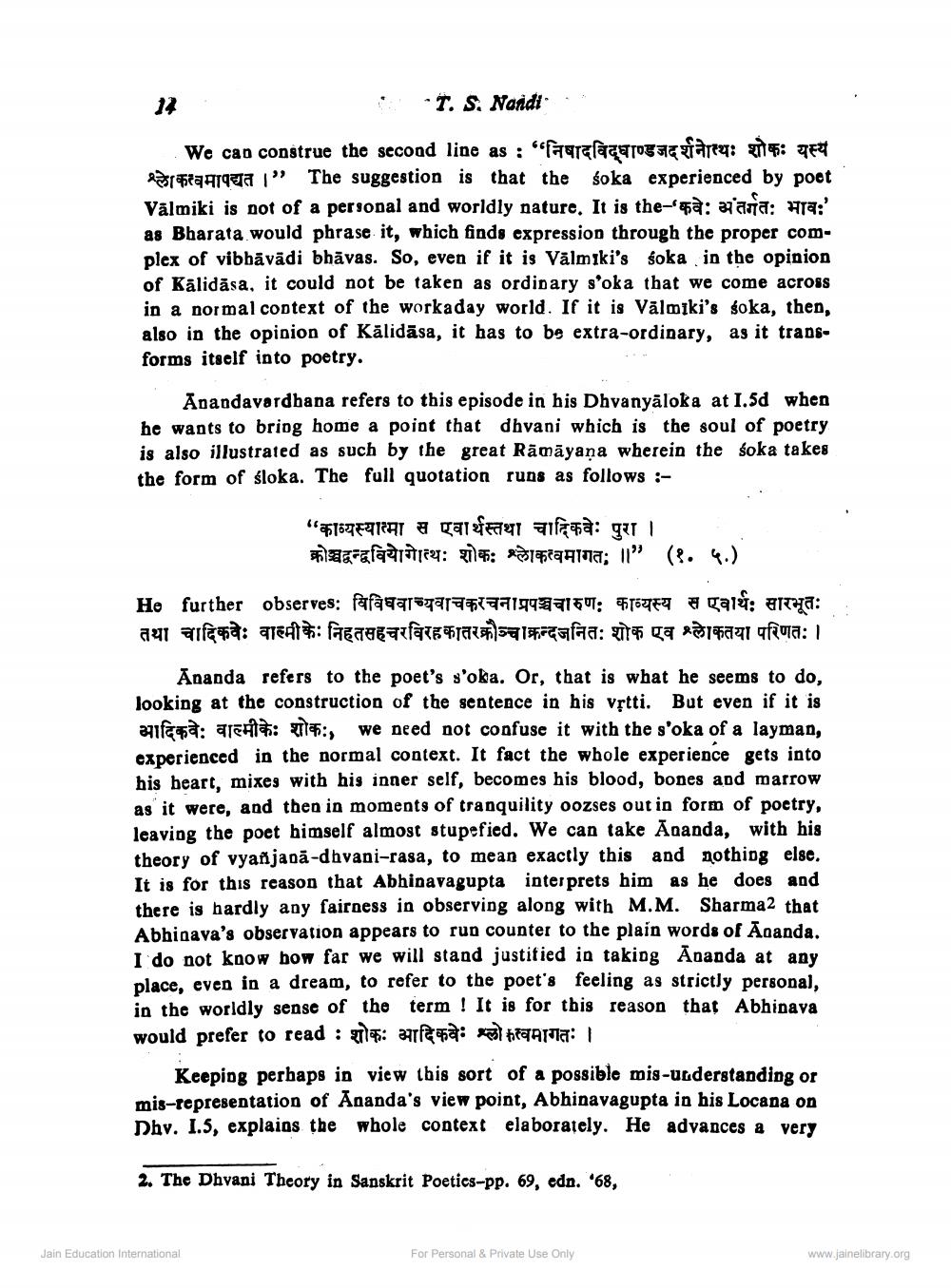________________
T. Nandi.
We can construe the second line as : "farclaqarog gestartet: 14: 777
#eagra " The suggestion is that the soka experienced by poot Vālmiki is not of a personal and worldly nature. It is the-sa: aada: Hra:' as Bharata would phrase it, which finds expression through the proper complex of vibhāvādi bhāvas. So, even if it is Välmiki's soka in the opinion of Kālidāsa, it could not be taken as ordinary s'oka that we come across in a normal context of the workaday world. If it is Vālmiki's soka, then, also in the opinion of Kälidāsa, it has to be extra-ordinary, as it transforms itself into poetry.
Apandavardhana refers to this episode in his Dhvanyaloka at 1.5d when he wants to bring home a point that dhvani which is the soul of poetry is also illustrated as such by the great Rāmāyana wherein the soka takes the form of sloka. The full quotation runs as follows :
"7164FFIAT a gareffen allega: gar i
agafaritie: 1): 212ana; "
(. 4.)
He further observes: farà qq1877177279199291801: $152769 # gaia: arra: तथा चादिकवेः वाल्मीकेः निहतसहचरविरहकातरक्रौञ्चाक्रन्दजनित: शोक एव लोकतया परिणतः ।
Ananda refers to the poet's s'oka. Or, that is what he seems to do, looking at the construction of the sentence in his vịtti. But even if it is 371f6a: arcilla: , we need not confuse it with the s'oka of a layman, experienced in the normal context. It fact the whole experience gets into his heart, mixes with his inner self, becomes his blood, bones and marrow as it were, and then in moments of tranquility oozses out in form of poetry, leaving the poet himself almost stupefied. We can take Ananda, with his theory of vyanjapā-dhvani-rasa, to mean exactly this and nothing else. It is for this reason that Abhinavagupta interprets him as he does and there is hardly any fairness in observing along with M.M. Sharma2 that Abhinava's observation appears to run counter to the plain words of Āganda. I do not know how far we will stand justitied in taking Ananda at any place, even in a dream, to refer to the poet's feeling as strictly personal, in the worldly sense of the term ! It is for this reason that Abhinava would prefer to read : 974: 27 : THE Ama: 1
Keeping perhaps in view this sort of a possible mis-understanding or mis-representation of Ananda's view point, Abhinavagupta in his Locana on Dhv. I.5, explains the whole context elaborately. He advances a very
2. The Dhvani Theory in Sanskrit Poetics-pp. 69, edn. '68,
Jain Education International
For Personal & Private Use Only
www.jainelibrary.org




